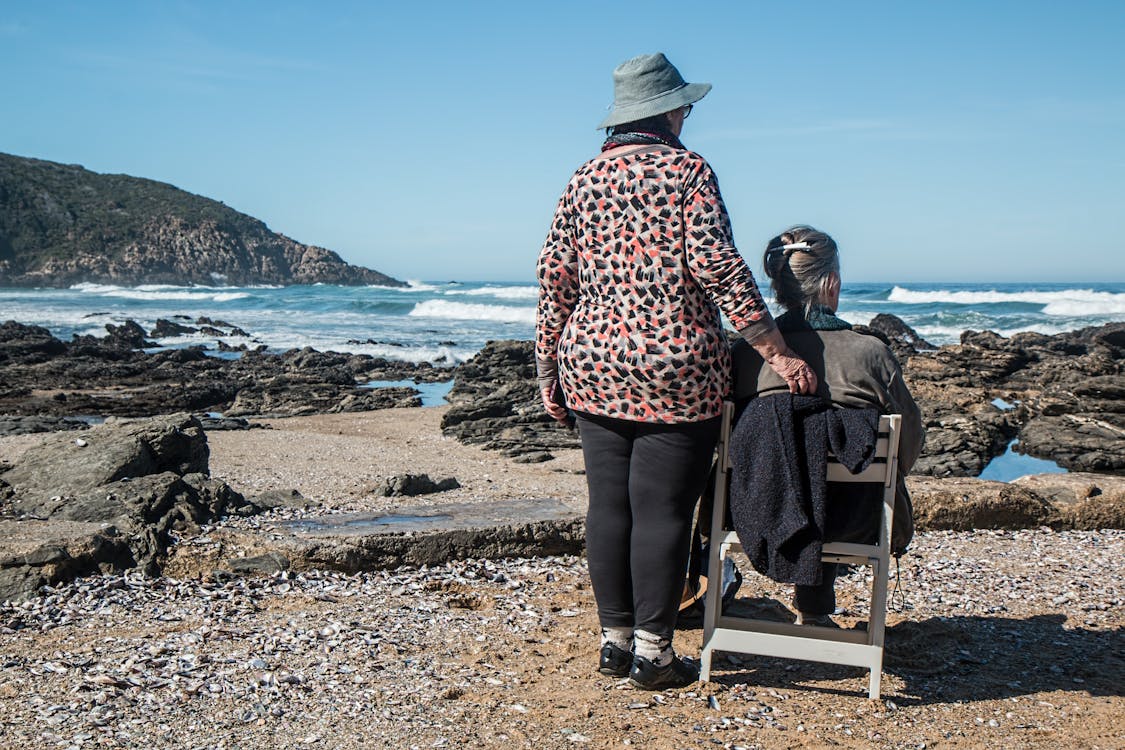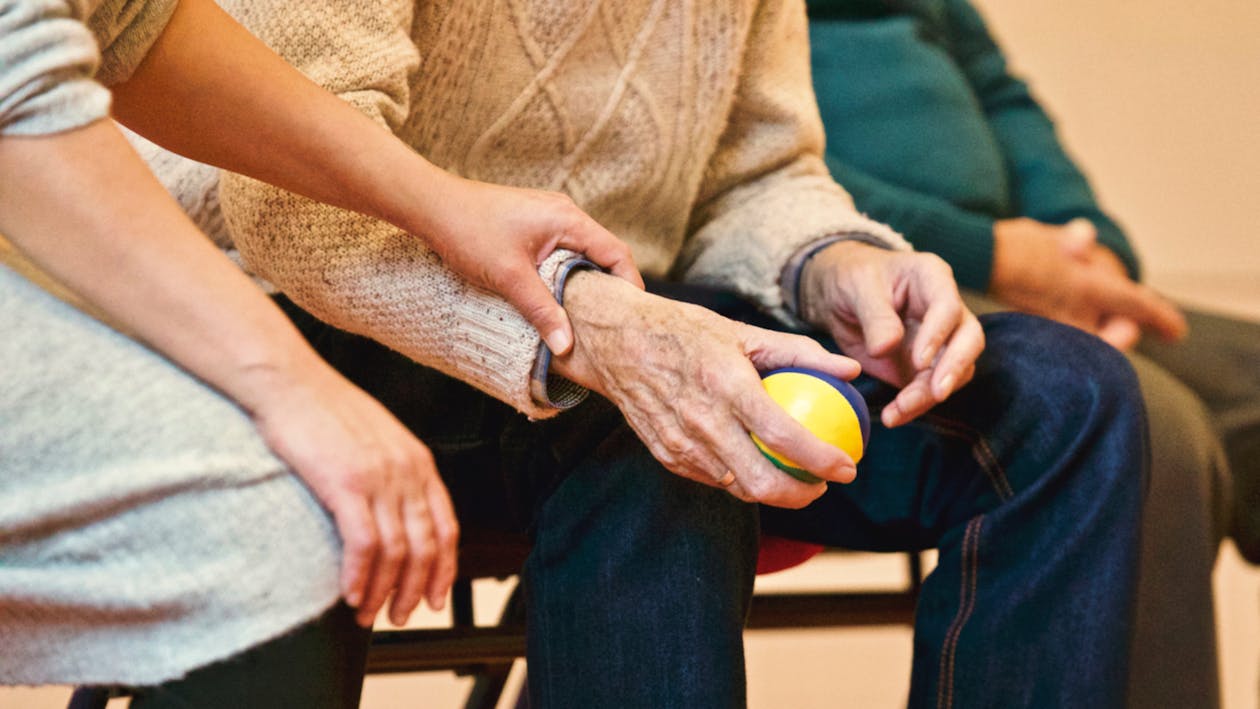
The food is spoiled, the mail is piling up or something just seems out of the ordinary, it’s important to be aware of the signs that an aging parent needs help.
Sometimes age sneaks up on everyone. Dad and Mom may have seemed themselves the last time you visited, whether a month — or even a year — has passed. Mental and physical health decline often surprises family members, especially if parents or senior loved ones seemed fine on the last visit. The key is to be aware of the small problems or signs that something may be wrong so that your family has an inkling of health decline and can properly prepare for the future.
For many families, the decision to hire home care is not always an easy one. Especially if your loved one maintains that they are fine on their own. So when should you insist on it?

There are a bunch of warning signs that are easy to spot. For example, the exterior of the house has peeling paint or the driveway isn’t shoveled or the walkway isn’t treated. Once you enter the home, the mail is piled up and newspapers are still in plastic wrap. Maybe the house isn’t as clean as normal or has an odor. You can usually tell when something is ‘off’.
Since a health crisis can catch everyone involved off guard and escalate quickly, it’s important to not ignore signs that something may be wrong with an aging parent.
Six Signs A Senior That You Care About May Need Help At Home

1.Falling behind on daily tasks and chores
If you notice that your loved one’s once tidy house is cluttered and dusty, their bills are unpaid, or they are falling behind on personal hygiene, it could be a sign that it is time to look for at home senior services. Whether due to mobility limitations or changes in cognition, it is common for older adults to find that household chores, planning, and organization, or personal care (such as dressing and bathing) become more challenging or even unsafe.
Home care can reduce stress or difficulty around housekeeping and ensure your loved one is safe and comfortable. Knowing someone is there to support your loved one throughout the day can also bring you peace of mind.
2.Struggling with meals
Has your loved one lost their interest in cooking or stopped eating regular meals? Maybe you notice that they stock the refrigerator and then go out shopping for items they already have? While it is common for metabolism and appetite to change as we age it is important that older adults get the nutrition they need to stay strong and healthy.
Hiring a caregiver is a helpful solution if your parent needs assistance getting to the grocery store, making meal plans, or if they don’t have the energy or ability to cook. It’s also important to remember that home care can be adapted to your loved one’s needs and wants.
Home care should enhance and compliment someone’s established routine. If someone still loves cooking, but grocery shopping and carrying bags upstairs has become too taxing, home care can strike the balance. Supporting someone with a little extra help leaves more energy for the activities they still love and enjoy.
3.Becoming lonely or isolated
If your loved one lives alone and is noticeably less active and social than they used to be, it could be time to intervene. According to a study in the Proceedings of the National Academy of Sciences, older adults experiencing social isolation and loneliness face a higher risk of mortality than their peers. Isolation can also increase a person’s risk of dementia and depression, significantly reducing their quality of life.
If you believe it is time to try home care but your loved one is reluctant, it can help to start incrementally. There are times that all of us, regardless of age, will need help, yet it is not unusual for someone to deny that they need it. When possible, introducing home care slowly and increasing care over time can be helpful to bring the person around.
4.No longer safe to drive
Driving is one of our greatest expressions of independence, but for many older adults, there comes a time when age-related conditions make it impossible to drive safely.
Asking your loved one to give up the car keys can be difficult. Having a caregiver available a few days a week to help with errands and get to appointments and social events can ease the transition. Some older adults even enjoy it when others take the wheel and feel relieved that they no longer need to drive to get where they need to go.
5.Recovering from an illness or injury
If your loved one has been ill or is coming home from the hospital, they may need extra support as they recover. A caregiver can prepare meals, assist with household chores, remind your loved one to take their medication on time and provide respite care for family members.
If your loved one is bedridden Superior Senior Home Care caregivers have special training in body mechanics to ensure safe movement from one place to another.
6.Walking with an unsteady gait
Have you noticed your loved one holding on to furniture or the walls as they navigate through their home? Have they recently had a fall or a few ‘near falls’? More than one-third of older adults fall down each year in the United States and up to 30% of those who fall will suffer moderate to severe injuries. These injuries often lead to the end of a senior’s ability to live independently.
By preventing a fall in the first place, your loved one will have a much better chance to remain healthy and in their chosen environment. A caregiver can offer a caring hand when walking, moving, and climbing stairs. He/she can serve as an extra set of eyes to ensure that the home is as safe as possible.
Additional Signs
Ideally, families will have conversations with their children or loved ones about getting their affairs in order and end of life care well in advance of having any issues. Here are some additional signs to be cognizant of when visiting a senior loved one:
- Bounced checks, calls from collections and late payment notices.
- Broken appliances.
- Changes in mood or extreme mood swings.
- Cluttered, dirty and/or disorganized house.
- Confusion and uncertainty when performing once-familiar tasks.
- Depressed or low energy temperament.
- Disheveled clothing.
- Expired/spoiled groceries that don’t get thrown away.
- Forgetfulness.
- Forgetting to take medications.
- House and yard need care/maintenance.
- Loss of interest in activities and hobbies.
- Missing important appointments.
- Poor diet or weight loss.
- Poor personal hygiene.
- Trouble getting up from a seated position.
- Unexplained bruising.
- Unexplained dents or scratches on the car.
If happiness or health seems to be compromised, it’s time to have a conversation about problems, whether it’s finding in-home care, a retirement community or a senior living community. It’s important to find the right care options for each unique family situation.
If your loved one is resisting the idea of home care, read our recommendations for talking to an older adult who refuses care.
Superior Senior Home Care, providers of top-rated at home senior services for Santa Maria families, offers a complimentary consultation with an advisor to help you determine your loved one’s home care needs. To schedule your free consultation, call 805.430.8767 or contact us online.


